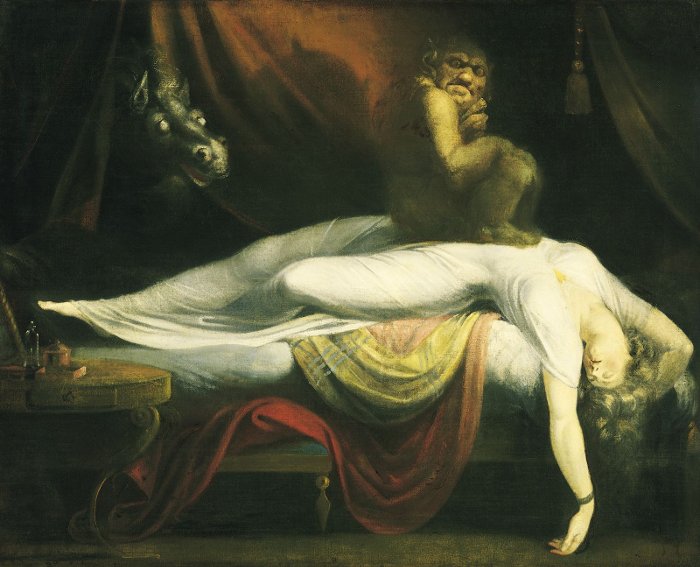Why do people experience hallucinations?
Lack of sleep, stress, grief, and trauma can make the brain more susceptible to hallucinations, due to the behavior of the sensory cortex and the wrong frontal lobe.
According to ABC News, hallucinations are quite common phenomena that people easily encounter in everyday life. It is a "false perception" of reality, appearing on the range of senses, but dissemination is visual and hearing hallucinations.
John McGrath, a professor at the Queensland Institute of Brain Research (QBI), Australia, said that nearly one in 20 people hear or see things that others cannot feel, in a state of complete alertness.
Usually, the brain is very good at distinguishing between sounds or images that are happening in the outside world and the sound and product images of the brain. But sometimes, exceptions still occur.

About 70% of healthy people experience hallucinations while sleeping.(Photo: Henry Fuseli).
According to Flavie Waters, professor of psychology and neurology at West Australia University, hallucinations occur when the connection between the frontal lobe of the brain and the sensory cortex is misleading.
For example, people with schizophrenia have auditory hallucinations when the auditory cortex is located, part of the brain is responsible for processing sounds, overacting. Similarly, people with Parkinson's disease have a visually active cortex, forming a bogus image. Neurologic drugs can also disrupt the relationship between the brain processing sensory and frontal lobes in the same way.
Hallucinations are not always negative and scary , even in the case of people with schizophrenia. About 70% of healthy people experience benign hallucinations when they are sleeping, for example hearing someone call their name, hear a phone ring or see someone sitting at the end of the bed.
"We are trying to find out whether hallucinations have many different forms or only one type, and the cause of distressing hallucinations in some specific cases , " Waters said.
Lack of sleep, stress, grief and trauma make the brain easy to fall into hallucinations . "When our brain works well, the brain is the driver of the car, it determines what happens and controls the rest of the brain. But when we lack sleep, stress, grief, lobe Waters ' tired, uncontrollable forehead, which makes the brain feel like it works in an undesirable way, creating hallucinations, " Waters said.
- See what is at the moment of near death?
- Explaining the phenomenon of seeing ghosts who died
- See the experience description
- The truth is naked behind hallucinations
- Human perception of clinical death
- Hallucinations are not entirely dependent on the mind
- Deja Vu hallucinations are not scary by the experience that science has just studied
- Strange hallucinations make viewers nauseous
- The mystery of hallucinations 'ghost passengers' in Japan
- Electronic skin helps people with limbs feel pain and objects
- 3 audio illusions certainly you have never known
- Why can you hear the sound of this photo?
 'Fine laughs' - Scary and painful torture in ancient times
'Fine laughs' - Scary and painful torture in ancient times The sequence of numbers 142857 of the Egyptian pyramids is known as the strangest number in the world - Why?
The sequence of numbers 142857 of the Egyptian pyramids is known as the strangest number in the world - Why? History of the iron
History of the iron What is alum?
What is alum? Neuralink tests controlling a robotic arm with thoughts
Neuralink tests controlling a robotic arm with thoughts  Elon Musk's ambition to merge humans with AI
Elon Musk's ambition to merge humans with AI  New discovery in dogs points to paradox in nature
New discovery in dogs points to paradox in nature  Shocking Research: Human Memory Doesn't Exist Only in the Brain
Shocking Research: Human Memory Doesn't Exist Only in the Brain  Breakthrough invention helps fight dementia in old age
Breakthrough invention helps fight dementia in old age  You Can Master This Bat and Dolphin 'Skill' in Just 2 and a Half Months of Practice
You Can Master This Bat and Dolphin 'Skill' in Just 2 and a Half Months of Practice 